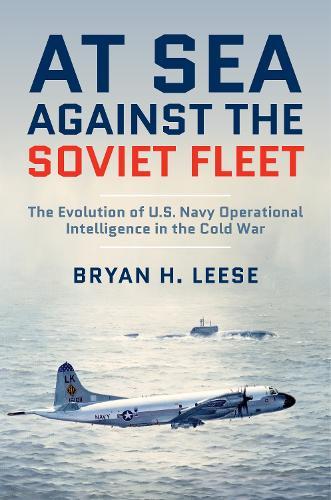Overview
At Sea Against the Soviet Fleet is a history of the evolution of the United States Navy's Operational Intelligence culture that informs great power competition with China today. At Sea Against the Soviet Fleetexamines the critical transformation of naval intelligence during a pivotal era marked by the Cold War and the Vietnam conflict. Bryan Leese meticulously details how U.S. Navy operational intelligence evolved to meet the complexities of modern naval warfare, particularly in response to the increasing threats posed by the Soviet Navy. Structured into four main parts, this book begins by examining the Vietnam War and the institutionalization of shipboard operational intelligence, or what Navy intelligence calls Opintel. The book highlights the establishment of Integrated Operational Intelligence Centers as part of the RA-5C Vigilante program and the innovative strategies that emerged in air combat and targeting. Leese goes on to underscore the necessity of Opintel to the U.S. Navy's close and distant blockade strategy in the 1960s and 1970s. He delves into the decentralization of intelligence processes, emphasizing the importance of adaptability and the need to prevent surprise attacks. This evolution is framed within the transition to the Navy's Ocean Surveillance Information System, a decentralized and responsive operational intelligence system. The ongoing developments of shipboard intelligence capabilities are explored, demonstrating how these advancements empowered naval commanders. In the 1970s, the organizations evolved as the revolutionary Opintel adaptations of the 1960s that leveraged cooperation without hierarchy became formalized. Leese highlights the revolution to evolution process by introducing Opintel support to shipboard tactical decisions to integrate operational intelligence into comprehensive naval strategies. Capturing the essence of this transformative period, the author discusses the cultural dynamics within the Navy that fostered innovation and interdepartmental collaboration. These developments not only contributed to maintaining a strategic edge over the Soviet Union, but also laid the groundwork for future naval operations in the digital age. Leese's work reveals the intricate interplay between technology, strategy, and personnel in creating an effective intelligence framework that allows the U.S. Navy to assert influence at sea, setting conditions for sea control in conflict. By blending rich archival research with firsthand accounts, this book offers a nuanced understanding of how the Navy adapted to an ever-changing operational landscape, ultimately preserving peace while navigating the complexities of high-stakes maritime conflict.
Full Product Details
Author: Bryan H. Leese ,
Andrew Lambert
Publisher: Naval Institute Press
Imprint: Naval Institute Press
Edition: New edition
ISBN: 9781682472026
ISBN 10: 1682472027
Pages: 384
Publication Date: 27 November 2025
Audience:
Professional and scholarly
,
College/higher education
,
Professional & Vocational
,
Postgraduate, Research & Scholarly
Format: Hardback
Publisher's Status: Active
Availability: Not yet available, will be POD

This item is yet to be released. You can pre-order this item and we will dispatch it to you upon it's release. This is a print on demand item which is still yet to be released.
Reviews
""The best researched and most authoritative history (classified or unclassified) of the development of navy operational intelligence support to afloat commanders, this book is a must-read for any serious naval intelligence professional."" —Rear Adm. Tom Brooks, U.S. Navy (ret.), Director of Naval Intelligence 1988-1991
Author Information
Bryan H. Leese, a retired U.S. Navy captain, was a career naval intelligence officer with extensive experience in operational intelligence. He has held senior positions across the intelligence community, most notably as Chair, Defense Intelligence Department, National Intelligence University, and as Branch Chief, Transregional and then North/West Africa in J2 (Joint Intelligence), United States Africa Command. He lives in Chesapeake, Virginia.



